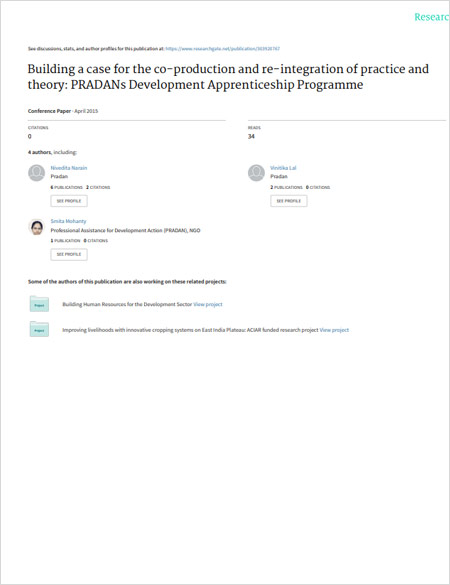Learning Research and Collaboration Challenges and Opportunities Gavin Ramsay

Drawing on our experiences from the Australia Centre for International Agricultural Research (ACIAR) funded research project ’Improving Livelihoods with innovative cropping systems on the East India Plateau‘ this paper outlines a simplified, practical approach that uses learning as the basis.
Our approach to learning has been captured in the term an ’Inclusive Learning Approach‘. Learning forms an important basis for development of individuals and groups of people with that learning and development taking place through experiences embedded in the context in which they live. In the Inclusive Learning Approach, learning is considered to be controlled by cognitive and affective elements, with experience, and its interpretation through those elements being key to learning. The approach depends on a willingness and openness on the part of ‘experts’ to, acknowledge their own world‐view and assumptions (both cognitive and affective), and possess a desire to learn. Research, the second key element in the approach, occupies several positions in this context and is not purely the domain of, nor controlled by the academic researcher. While the individual is the focus, groups are the unit of engagement for most activities and groups play an important role in the approach and in research. Many groups can also be considered as learning groups and groups appear to generate enhanced learning. The enhanced learning that occurs in groups has multiple elements some of which relate to the ability to access skills and knowledge across the group, and access to the cognitive processes of other individuals in the group, while others are unexplained but appear to be emergent and greater than the sum of individual learning.

